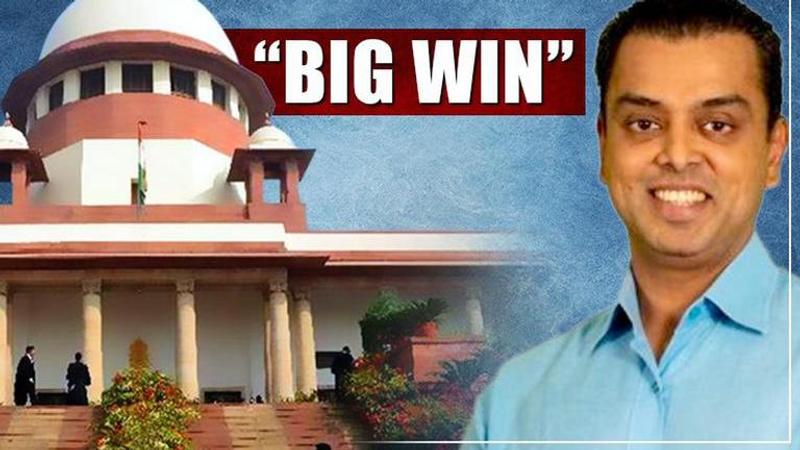Published 16:00 IST, November 13th 2019
Hailing CJI's office coming under RTI, Milind Deora posts speech from bill's passage
As the SC upheld Delhi HC's 2010 order of bringing CJI's office under the ambit of Right to Information (RTI), Congress leader Milind Deora hailed the decision

As the Supreme Court of India upheld Delhi High Court 2010 order of bringing Chief Justice of India's (CJI) office under the ambit of Right to Information (RTI), Congress leader Milind Deora hailed the decision. Taking to Twitter, he said that it is a big win for transparency and accountability of the judiciary. He also shared his 2005 speech in Lok Sabha wherein he had called the RTI Act as a watershed legislation.
In the 22 minutes-long speech, back in 2005, Deora had said that RTI is an empowerment and it will bring great deal of transparency and accountability. Regarding the judiciary under RTI, he had said that it will ensure delivery of justice trasparently and will be a step to a better and improved global governance. Comparing and contrasting erstwhile NDA and the then UPA government, Deora had said that while the NDA saw RTI as 'freedom' of information, the UPA sees it as 'right' to information.
Delivering a landmark judgment on Wednesday, the Supreme Court upheld the Delhi High Court decision bringing the office of the chief justice of India (CJI) under the ambit of the Right to Information (RTI) Act. A five-judge constitution bench headed by Chief Justice Ranjan Gogoi has pronounced the judgement observing that the Office of CJI comes under “public authority”. Other members of the bench are Justices N V Ramana, D Y Chandrachud, Deepak Gupta and Sanjiv Khanna. While Justice Khanna wrote the majority verdict, Justices Ramana and Justice Chandrachud wrote separate and concurring verdicts.
In a 3:2 split verdict, the SC bench said that as per RTI's provision - the CJI falls under the definition of public authority. The top court added that Public interest demands transparency and that it does not undermine judicial independence. However, the top court said that RTI should not be used as a tool for surveillance.The 5-judge bench also said that judicial independence can't be achieved by denying information, adding that independence and accountability goes hand in hand.
The top court highlighted that judges are not precluded from the rule of law as they hold a constitutional position including the CJI. However, the apex court underlined that the RTI does not fall under Article 19 and therefore transparency cannot be allowed to run counter to the right to privacy.
2010 verdict by Delhi High Court
In a path-breaking verdict on January 10, 2010, the Delhi High Court had held that the office of the chief justice of India comes within the ambit of the Right to Information (RTI) law, saying judicial independence was not a judge's privilege, but a responsibility cast upon him. The 88-page judgement was then seen as a personal setback to the then CJI, KG Balakrishnan, who has been opposed to disclosure of information relating to judges under the RTI Act. The high court verdict was delivered by a three-judge bench comprising Chief Justice A P Shah (since retired) and Justices Vikramjit Sen and S Muralidhar.
Updated 16:57 IST, November 13th 2019




